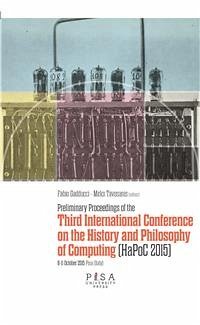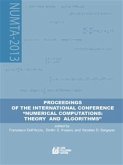Computing machines, today, seems both ubiquitous and on the verge of disappearing. They evolve and metamorphose in everyday objects, from slates and phones to cars and watches, often, they become just part of the landscape. However, il was not always so; maybe, it not always be.The Third Conference on the History and Philosophy of Computing (HaPoC 2015), held in the Museum of Computing Machinery of University of Pisa, is the most apt event for addressing such musings.This volume contains the abstracts of the thalks presented during the symposium, and the polymorphism of computing is well displayed in the variety of contributes from the partecipants. The interest of the reseachers in this field display amazing variety and ingenuity, and HaPoc 2015 offers a rare opportunity to survey the current state of the art. Indeed, the conference brings together those researchers interested in the historical developments of computers as well as those reflecting on the sociological and philosophical issues related to computing. From the Middle Ages to the theoretical tendencies, the ground covered here is a large swath, ranging from logics and computability questions to the modelling of reality, from the historical antecedents of computing to topics related to the humanities and the arts.
Bitte wählen Sie Ihr Anliegen aus.
Rechnungen
Retourenschein anfordern
Bestellstatus
Storno









